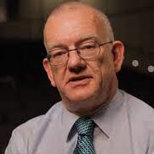Grounds for debate: The challenges to free speech in universities
SUGGESTED



- There is currently much concern with questions of freedom of speech and expression, much of it focused on the appearance of so-called ‘wokeness’ and its manifestations in corporate life, the media, and (most notably) the academy.
- Historically the idea of free expression was seen as dangerous or a heresy. But this has changed over the last 250 years, as a combination of technological change and active campaigns for free expression established the principle of a right to free speech. This led to the emergence of an infrastructure or ecology of places and institutions that supported it, of which the university was one but by no means the most important.
- An absolute and unlimited right to free speech and expression has never existed because that right is always qualified by other ones, including notably the very ones that also sustain free expression, such as private property, freedom of association and freedom of contract (including contracts of employment). Historically universities were not centres of free expression but were concerned with the articulation, exploration and defence of orthodoxy.
- The current problems with free speech at universities are real but overstated (as this is actually a problem primarily found in elite institutions and only in the Anglosphere) and come primarily from the lack of intellectual diversity in the sector as a whole and between institutions rather than in any one institution.
- They reflect a wider problem in society – the decay of the ecology or infrastructure built up in the nineteenth and early twentieth centuries. This decline was caused not so much by technology (which commonly gets the blame) as by the growth of both government and certain kinds of private funding, the corrupting effect of the predatory and dysfunctional US legal system, and the increasingly intense intra-elite status competition produced by the combination of meritocracy and elite overproduction.
- Direct measures by governments to impose on universities a duty to provide a platform for speakers are an unwarranted imposition on private bodies. This illustrates the problems with government funding and the lack of genuine university independence and variety within the sector.
Fullscreen Mode




